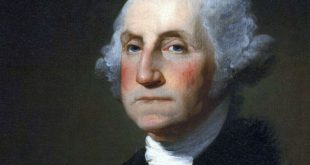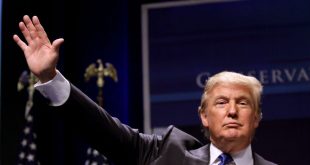 It’s fortunate the Supreme Court of the United States saw it fit last week to rule that corporations could not be coerced into covering religiously objectionable forms of birth control for their employees.
It’s fortunate the Supreme Court of the United States saw it fit last week to rule that corporations could not be coerced into covering religiously objectionable forms of birth control for their employees.
This was a critical ruling, because it indicates that the majority of the Court still thinks religious beliefs and personal choice have a valid place in American society. The margin of the split decision, however, is alarming, because it reminds us of how close we are to having a government that will subject moral convictions to its bureaucratically directed control.
People have legitimate differences of opinion about the appropriateness of various forms of birth control, which is something most reasonable people on both sides of the political ledger understand. However, legally requiring the side opposed to a form of birth control to be financially responsible for its distribution to any employee who wants it is distinctly un-American and abusive to the concept of freedom of religion.
A major problem is that many people in our entitlement society see nothing wrong with forcing others to provide for their desires. In a free and open society, anyone should be able to purchase anything he or she wants that is legal. It really should be no one else’s business. Common sense dictates, however, that it immediately becomes my business if I’m being forced to pay for it.
Wouldn’t it be fairer and make more sense for people wanting some form of birth control to pay for it themselves? This is exactly what would happen if everyone had access to his or her own health savings account. A woman and her health care provider would decide on a birth control method, and the cost would be deducted from her account with no involvement of anyone else in any way. It’s so simple and upholds privacy and freedom.
Health savings accounts can be funded in a variety of different ways and give people total control of where, how and with whom they wish to spend their health care dollars. Most people will want to get the biggest bang for the buck and will independently seek out both value and quality. That, in turn, will bring all aspects of medicine into the free-market economic model, thus automatically having an ameliorating effect on pricing transparency and quality of outcomes.
Many corporations and communities already have very positive experiences with health savings accounts. Those experiences could be further enhanced by allowing family members to shift the money in their accounts among themselves.
For instance, if a family member was $500 short for a procedure or test, another family member could provide the money by authorizing its deduction from his account. This provides a whole other level of flexibility to the concept of health savings. The overwhelming majority of encounters with the medical world could be handled through this type of system, eliminating bureaucratic delays and frustration.
Under the multitudinous rules of Obamacare, the amount of money allowed to be managed through health savings accounts is severely restricted. Perhaps that is because the crafters of this gigantic, bureaucratic monstrosity realized that a well-functioning savings system would be easy to understand, much less expensive and give people control of their own health care. It would also eliminate two-tiered systems of health care, making every patient equally desirable from a business perspective. There should be no limit to the amount of money that can be contributed to and managed in an account. Money unspent at the end of the year should simply continue to accumulate without penalty.
If accounts are established at the time of birth, they will be even more potent, because the vast majority of people will not experience catastrophic or major medical events until well into adulthood. By that time, a great deal of money will have accumulated. Since bridge or catastrophic insurance will not be drawn upon for routine medical expenses, its costs will plummet, very much like homeowners insurance, which costs vastly less when there is a high deductible.
Somehow over the past few decades, we as a society have wandered away from the concept of using health insurance only for major medical issues and paying for routine services ourselves. This is largely responsible for the tremendous spike in medical costs. By using the health savings account system, we can return to a semblance of rational thinking.
The 5 percent of patients with complex pre-existing or acquired maladies would need to be taken care of through a different system, similar to Medicare and Medicaid but informed by the many mistakes in those programs from which we can learn. Even this kind of system should have elements of personal responsibility woven into it.
The bottom line: Health care for all of our citizens is the responsibility of a compassionate society and is well within our grasp, if we don’t make it into a political football. The majority of Americans are unhappy with Obamacare and would prefer something that is simple, effective and under their own control. We do not have to settle for something imposed upon us for reasons other than good health care.
Photo credit: 401(K) 2013 (Creative Commons) – Some Rights Reserved
 Dr. Ben S. Carson is professor emeritus of neurosurgery at Johns Hopkins University.
Dr. Ben S. Carson is professor emeritus of neurosurgery at Johns Hopkins University.
 Black Community News News and Commentary for Christians
Black Community News News and Commentary for Christians



